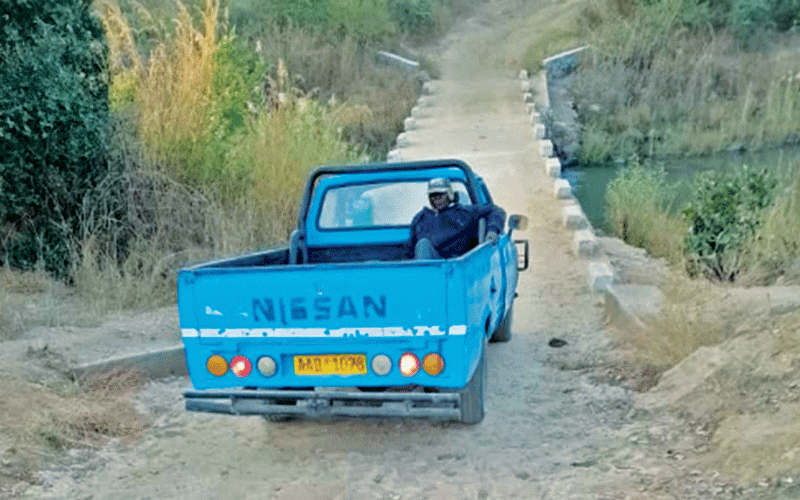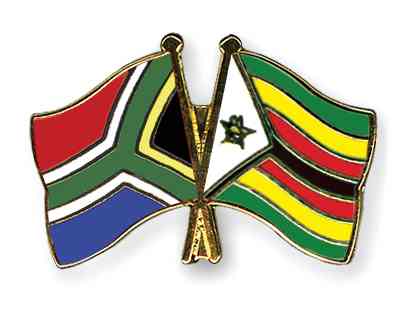
A SMARTLY dressed all female choir from Marumisa village, under Headman Mukarate in Murewa, took to the stage.
Led by a 93-year-old chorister, the singers captivated the minds of the people as they chronicled — through song — how they had brought meaningful development to their area.
Their elite outfits at the heart of a rural area were outstanding, telling a story of a community that is way ahead with development and enjoying village economic growth.
A total of 58 villages have come together to form a thriving collective farming initiative, Zunde Ramambo, showcasing the power of community-driven projects.
Through joint efforts and shared resources, these villages are achieving unprecedented success, boosting agricultural productivity and improving livelihoods.
“It was not an easy road, but here we are, our lives have improved, the villagers are enjoying the benefits of their hard work,” said the Zunde RaMambo chairperson Ambrose Marumisa, also the Marumisa village head.
About six years ago, the 58 villages came together and formed a Zunde RaMambo co-operative led by their traditional leaders.
Each village was tasked to unveil at least a two-hectare piece of land to be put under the project.
- Carnage as bigwigs fall by the wayside
- Chaos rocks Zanu PF Mash East
- Murewa learners get a lifeline
- Feature: Poverty haunts Zim’s resettled farmers
Keep Reading
Murewa South legislator Noah Mangondo, who is the anchor farmer for the project, provided farming inputs from seed to fertiliser for all the villages in the first year.
Since then, the project has been successful in alleviating hunger, fighting child marriages and improving economic growth within this community.
“It is now six years of farming under Zunde Ramambo and we have achieved a lot. The villagers are happy,” Marumisa told NewsDay Weekender in an interview at his homestead recently.
“As a community, we now have our own funeral policy or package, that is worth more than US$400.
“There is no more hunger here. We grow maize, millet and beans across all the 58 villages, we keep some of the maize and sell the rest of crops. We then use the proceeds to develop ourselves and the area.”
The Mukarakate village funeral assurance policy package comprises a US$100 coffin, 100 loaves of bread, 20kg sugar, 20kg rice, burial slabs, 10 litres cooking oil, flowers and 50 cabbages, among other things.
Using funds from the initiative, the community also owns tents, chairs and cooking utensils used at funerals and other gatherings.
The community also constructed a bridge across Nyadire River, funding it to the tune of US$16 000.
The bridge links the community from both Murewa Centre and Mutoko.
“We managed to construct a bridge across Nyadire River. We forked out US$10 000 from our crop sales, while the other US$6 000 was donated by well-wishers,” Marumisa opened up.
“The bridge was constructed by our community builders, being guided by engineers from Murewa Rural District Council.”
The community is currently building an infant school in Marumisa Village using funds from the Zunde Ramambo project.
Marumisa revealed that some of their crops are kept to fight hunger in the area.
“We reserve five granaries, all to alleviate hunger in the 58 villages. Some of the maize are used to assist child-headed families and other vulnerable members of the society in the community including the elderly,” he said.
“No one will go hungry in this community. We also use the maize to deal with hunger usually in the lean season.
“For example, if someone runs out of food in the lean season, he or she borrows from our granary and reimburse us once he or she harvests the next season.”
Marumisa added that villagers sit down and come up with a development project of their choice each season.
“Out of 58 villages, this year we planted 86 hectares of maize, 63 hectares of ground nuts and 8 hectares of millet,” he said.
“So far, we are yet to collect total tonnage since harvesting is yet to be concluded from all the villages.
“But for us as Marumisa Village, we got 100 bags groundnuts, 26 tonnes maize, 17 bags millet and 24 bags of beans. So you can multiply these by 58 villages to get an average total tonnage.”
Mangondo hailed the success of the initiative, adding that his dream is to see it spreading across the whole of Murewa.
“We wanted to fight hunger, initiate community development, fight gender-based violence (GBV) and child marriages, and it has worked well,” he said.
“There is no more hunger in Mukarakate area and the community is now into developing their own area. Imagine how they funded the construction of a bridge across Nyadire River, it is a massive move.
“We want the programme to spread across the whole constituency and we recently launched it at Hilton Farm.”
According to surveys by both government and non-governmental organisations, GBV and child marriages are caused by poverty, including hunger.
Today, villagers in Mukarakate area boast being the most organised ones.
Burying a deceased one is no longer a headache and soon, they will officially open an infant school, all funded from their efforts.
No one knows, in the future, the community might own a 75-seater bus.










